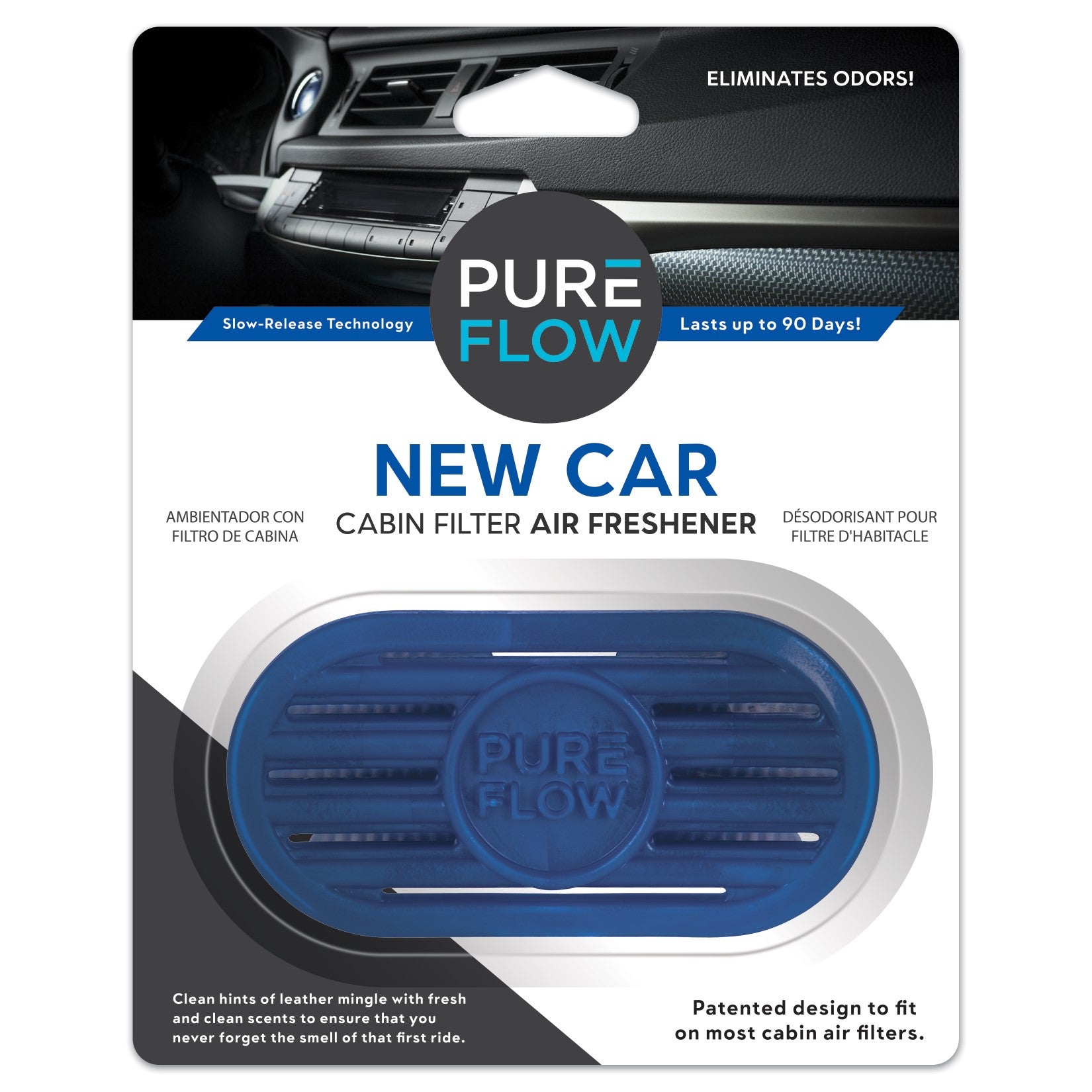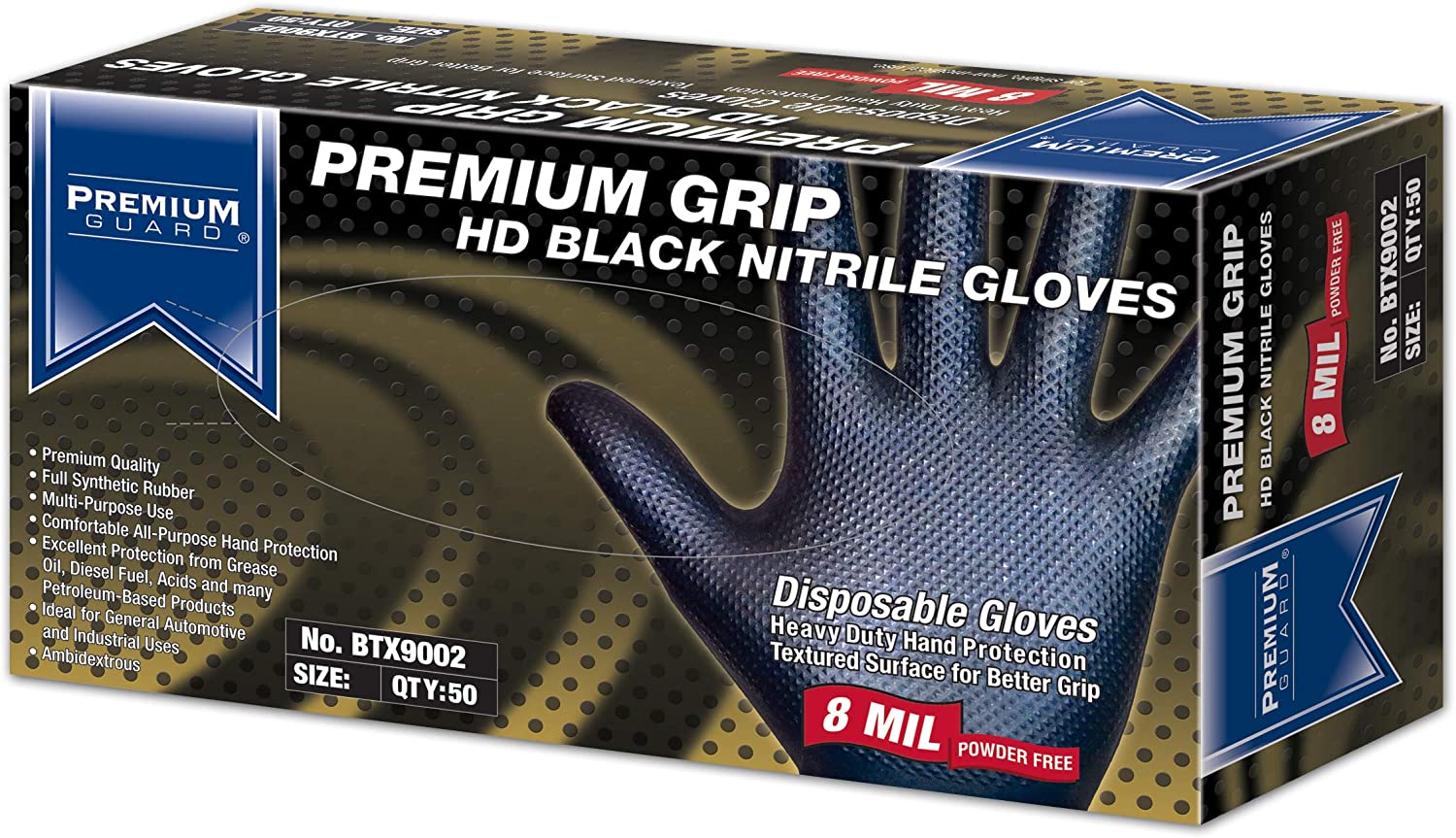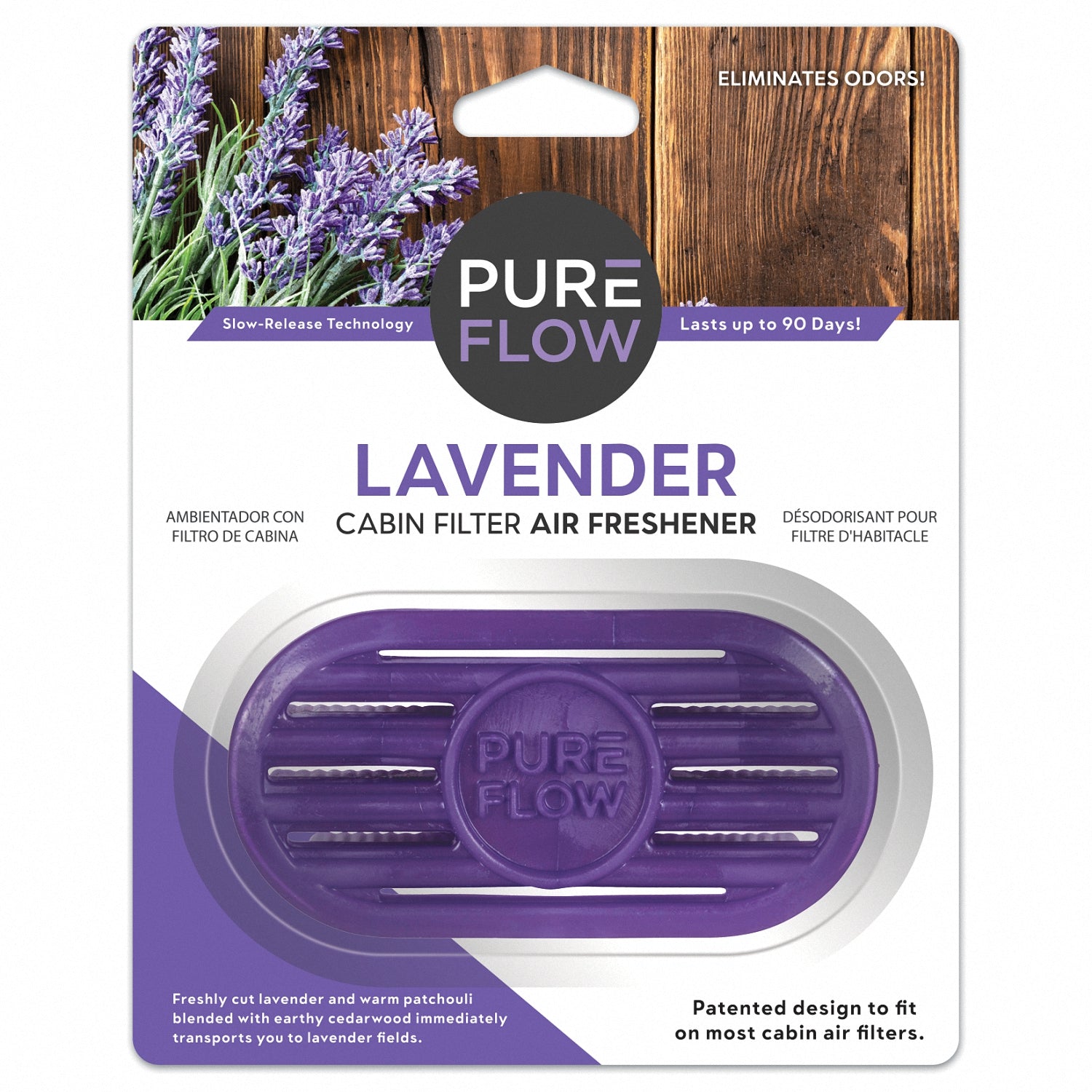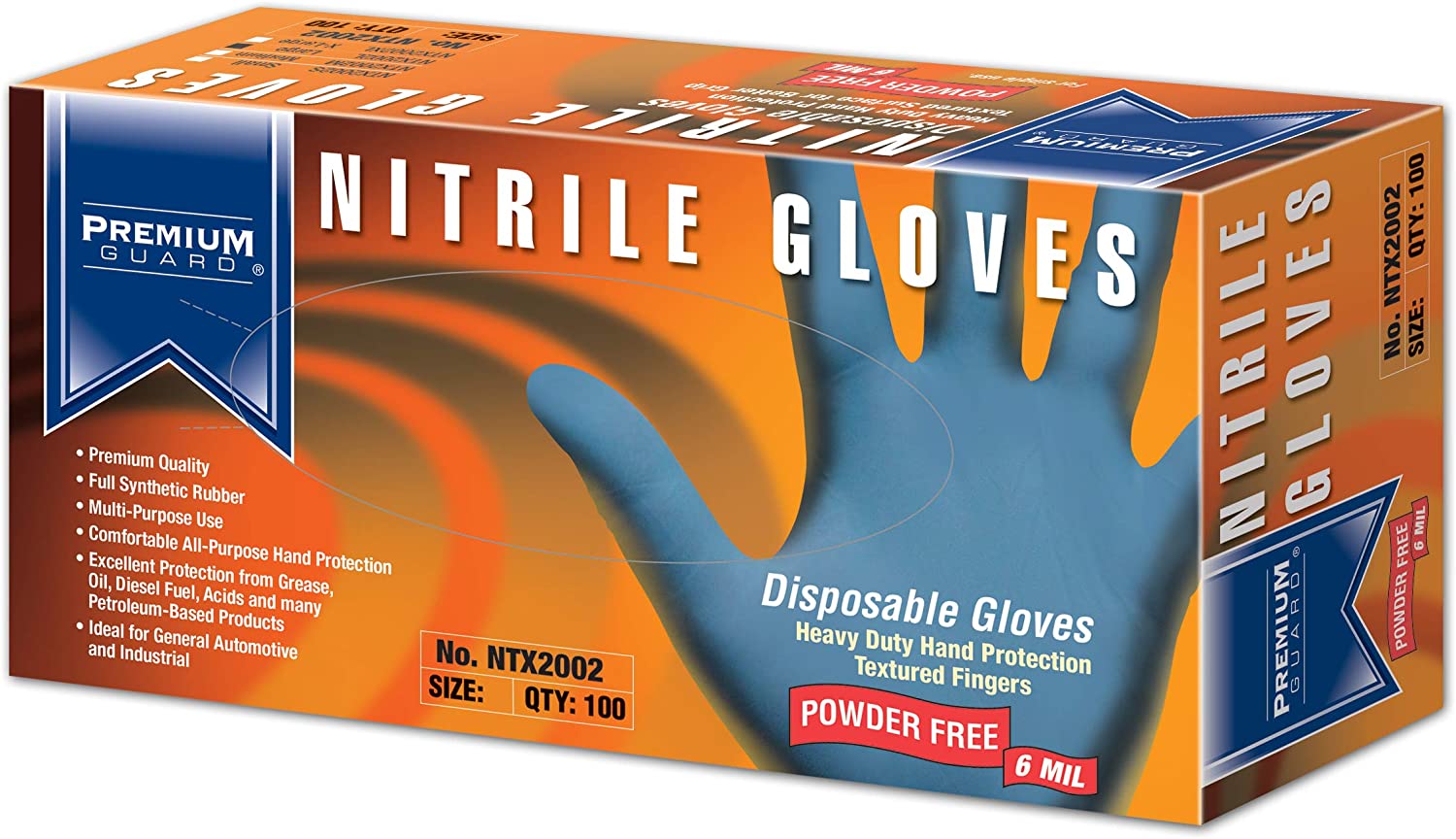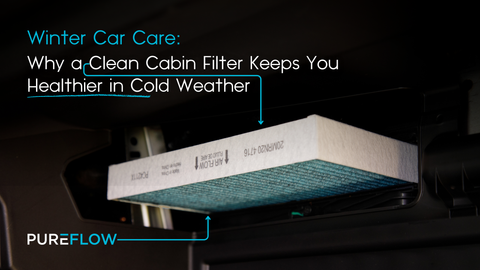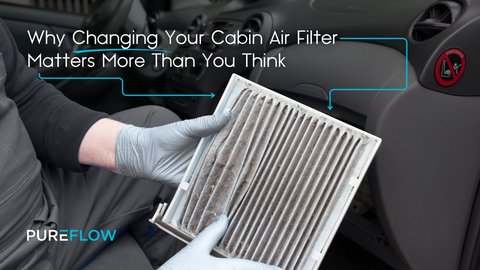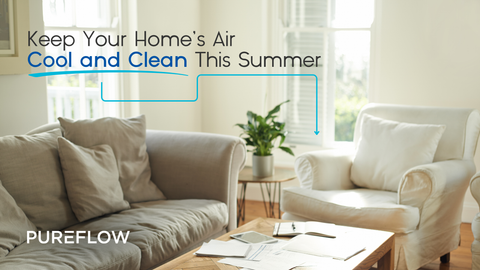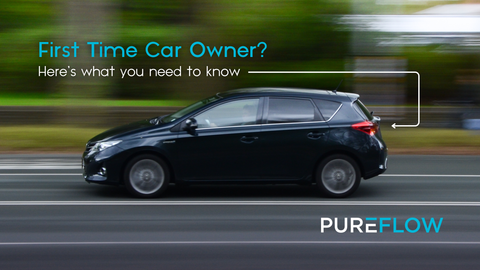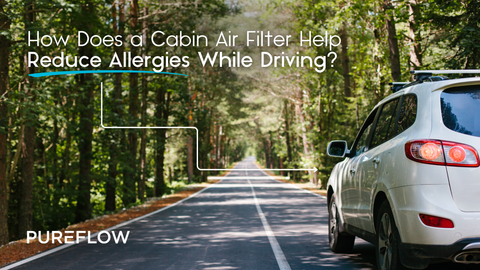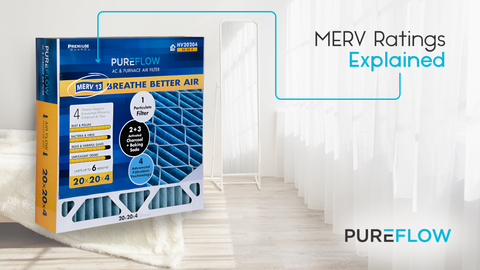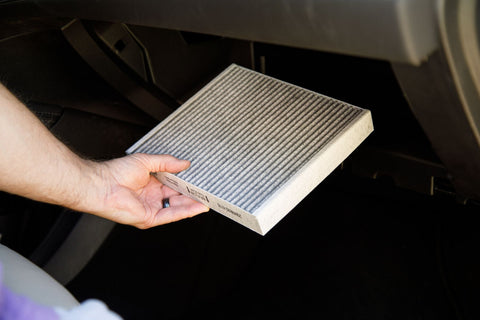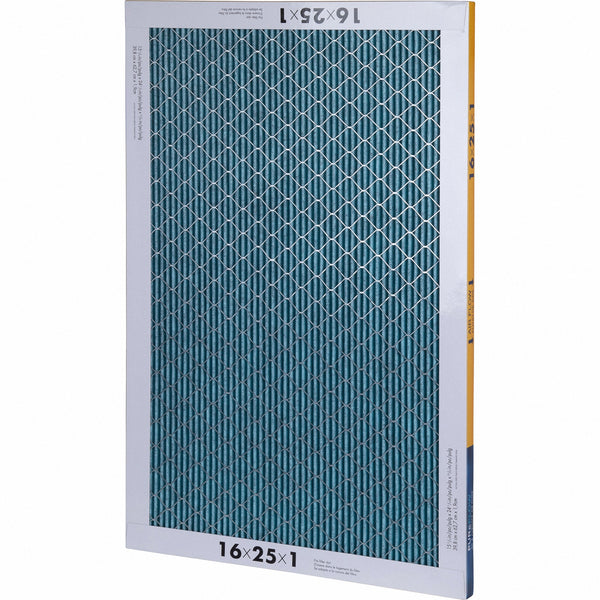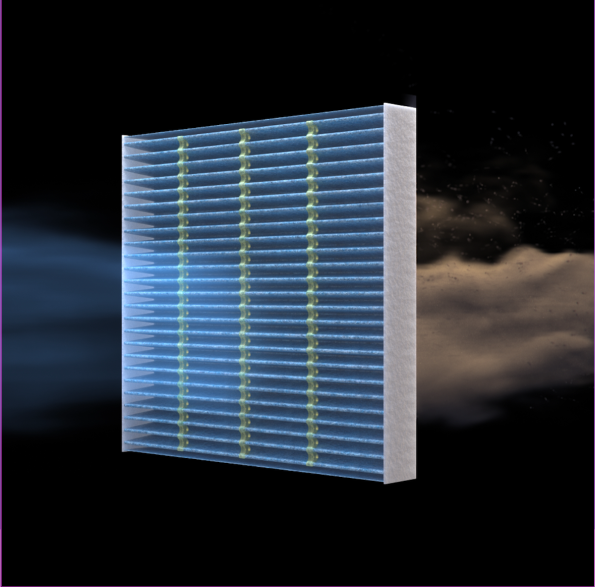Imagine this: You're packed up, holiday tunes are blasting, and the family is excitedly anticipating Grandma's famous pumpkin pie. But as you navigate winding roads through a winter wonderland, the car windows begin to fog, a chill creeps in, and everyone starts feeling stuffy and uncomfortable. What started as a festive journey quickly turns into a frustrating ordeal.
The culprit? It could be your cabin air filter Often overlooked, this small but mighty component plays a crucial role in keeping your car's interior comfortable and the air you breathe clean. A dirty cabin air filter can significantly impact your holiday road trip, turning it from "fa la la" to "blah blah blah."
This holiday season, ensure your road trip is filled with cheer, not sniffles and shivers.
I. Cabin Air Filters and Winter Driving
Winter throws some harsh conditions at your vehicle, and your HVAC (Heating, Ventilation, and Air Conditioning) system works overtime to keep you warm and comfortable. Cold temperatures, snow, ice, and road salt all contribute to increased stress on this vital system.
Your cabin air filter acts as the first line of defense for your HVAC system. It's designed to capture dust, pollen, allergens, pollutants, and even tiny debris like leaves and insects, preventing them from entering the system and clogging it up.
A dirty cabin air filter can have several negative consequences:
-
Reduced airflow: A clogged filter restricts airflow, leading to weak heating and defrosting. This can make the cabin uncomfortably cold and even hinder visibility by slowing down the defogging process, posing a safety hazard.
-
Poor air quality: If your filter is dirty, it can't effectively trap allergens and pollutants. This allows them to circulate throughout the cabin, potentially triggering allergies for you and your passengers.
-
Increased strain on the HVAC system: When the filter is clogged, the HVAC system has to work harder to push air through. This added strain can lead to premature wear and tear on components like the blower motor, potentially resulting in costly repairs down the road.
II. Signs of a Dirty Cabin Air Filter

Don't wait for a foggy windshield and freezing passengers to alert you to a problem. Here are some telltale signs that your cabin air filter needs attention:
- Reduced airflow from vents: Notice the air coming from your vents is weaker than usual, even when the fan is on high? This is a classic sign of a clogged filter.
- Persistent unpleasant odors: A musty or stale smell lingering in your car, even after airing it out, could indicate a build-up of mold or mildew on the filter.
- Increased noise from the HVAC system: If your HVAC system sounds louder than usual, especially when the fan is on high, it could be struggling to push air through a dirty filter.
- Whistling sounds when the fan is on high: This can indicate a gap or leak in the filter, allowing air to bypass it and create a whistling noise.
III. Benefits of a New Cabin Air Filter
Investing in a new cabin air filter offers a range of benefits, especially crucial during winter driving and holiday travels:
- Improved heating and defrosting performance: A clean filter ensures optimal airflow, allowing your HVAC system to heat the cabin quickly and efficiently and clear foggy windows faster.
- Better air quality: A new filter effectively traps allergens and pollutants, providing cleaner, healthier air for you and your passengers. This is especially important for those with sensitivities or allergies.
- Reduced strain on the HVAC system: A clean filter allows the system to operate with less effort, reducing wear and tear and potentially extending its lifespan.
- Enhanced comfort and enjoyment: Ultimately, a new cabin air filter contributes to a more comfortable and enjoyable driving experience, allowing you to focus on the joy of the holiday season.
IV. Holiday Road Trip Preparedness
Before you hit the road this holiday season, make sure your vehicle is ready for the journey. Checking and replacing your cabin air filter should be a part of your pre-trip checklist.
Focus on routine maintenance:
Think of your cabin air filter like the oil in your engine—it needs to be changed regularly for optimal performance. Aim to replace your cabin air filter every 15,000 to 20,000 miles or at least once a year. However, if you frequently drive in dusty conditions, live in areas with high pollution, or have allergies, you may need to replace it more often.
Combine this with other routine maintenance, such as:
- Wiper Blade Inspection: Before traveling, inspect and test your wiper blades to make sure they are operating effectively. This will help to ensure clear vision during adverse weather conditions.
- Checking tire pressure and tread depth: Ensure your tires are properly inflated and have sufficient tread for optimal grip on winter roads.
- Topping off fluids: Check your engine oil, coolant, and windshield washer fluid levels.
- Change your Air Filter: To keep your engine running smoothly in all weather conditions it’s important to change your air filter at least once a year.
- Testing your battery: Cold weather can affect battery performance, so ensure yours is in good condition.
- Inspecting brakes: Ensure your brakes are functioning correctly for safe stopping in potentially slippery conditions.
By proactively addressing these maintenance needs, you can significantly reduce the risk of unexpected breakdowns and ensure a smooth and enjoyable holiday road trip.
V. Conclusion
As we've explored, your cabin air filter plays a vital role in your vehicle's HVAC system, especially during the demanding winter months. A clean filter ensures efficient heating and defrosting, improves air quality, and reduces strain on the system, contributing to a safer and more comfortable driving experience.
This holiday season, don't let a dirty cabin air filter put a damper on your festive travels. Take the time to check and replace it if needed, and combine this with other essential maintenance tasks.
Wishing you safe and happy holiday travels!




